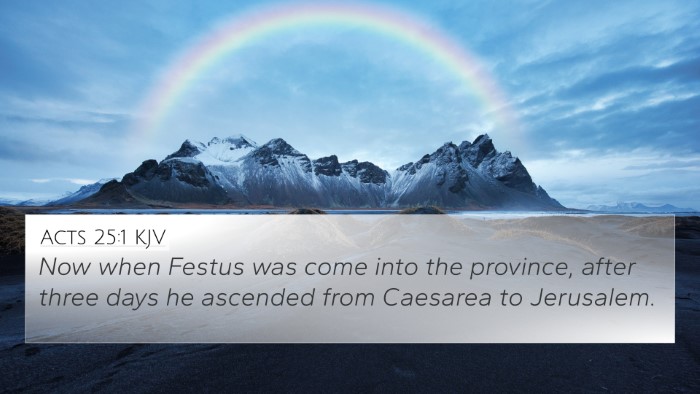This section features a detailed cross-reference designed to enrich your understanding of the Scriptures.
Below, you will find carefully selected verses that echo the themes and teachings related to Acts 23:34 KJV. Click on any image to explore detailed analyses of related Bible verses and uncover deeper theological insights.
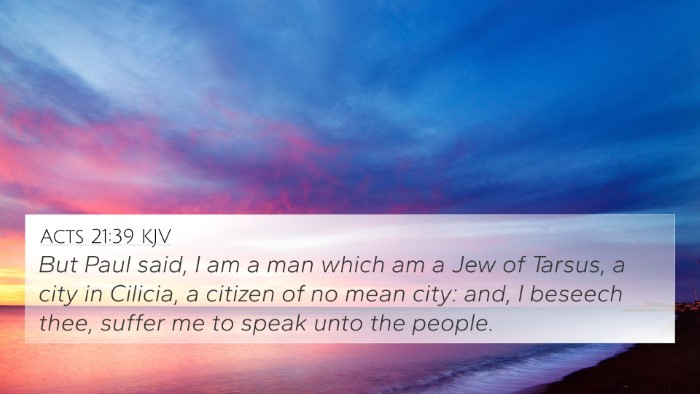 Acts 21:39 (KJV) »
Acts 21:39 (KJV) »
But Paul said, I am a man which am a Jew of Tarsus, a city in Cilicia, a citizen of no mean city: and, I beseech thee, suffer me to speak unto the people.
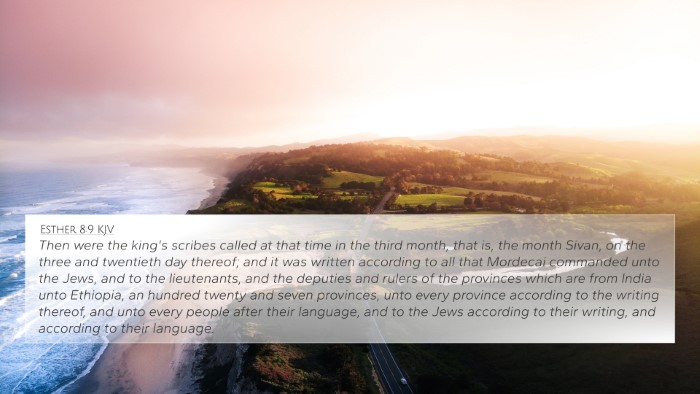 Esther 8:9 (KJV) »
Esther 8:9 (KJV) »
Then were the king's scribes called at that time in the third month, that is, the month Sivan, on the three and twentieth day thereof; and it was written according to all that Mordecai commanded unto the Jews, and to the lieutenants, and the deputies and rulers of the provinces which are from India unto Ethiopia, an hundred twenty and seven provinces, unto every province according to the writing thereof, and unto every people after their language, and to the Jews according to their writing, and according to their language.
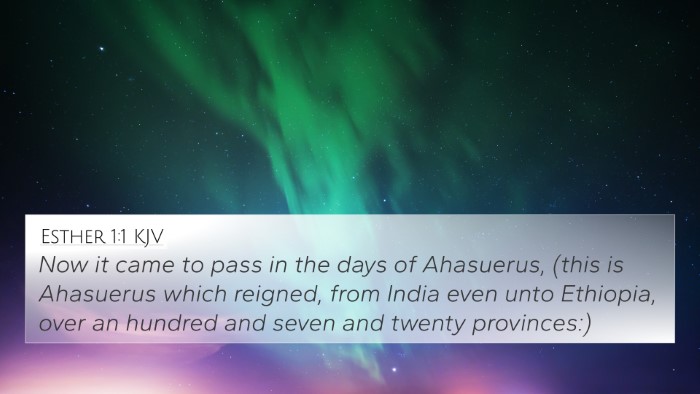 Esther 1:1 (KJV) »
Esther 1:1 (KJV) »
Now it came to pass in the days of Ahasuerus, (this is Ahasuerus which reigned, from India even unto Ethiopia, over an hundred and seven and twenty provinces:)
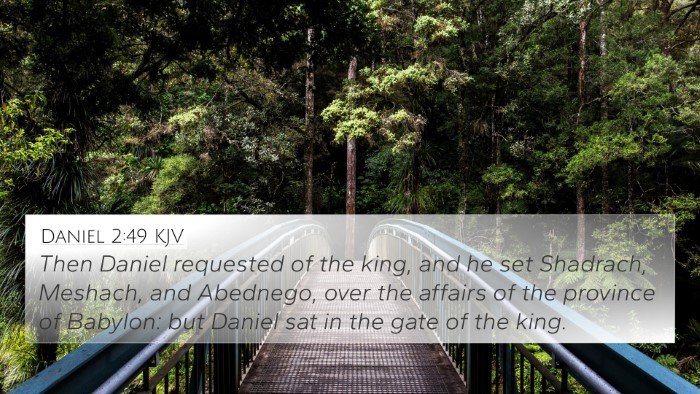 Daniel 2:49 (KJV) »
Daniel 2:49 (KJV) »
Then Daniel requested of the king, and he set Shadrach, Meshach, and Abednego, over the affairs of the province of Babylon: but Daniel sat in the gate of the king.
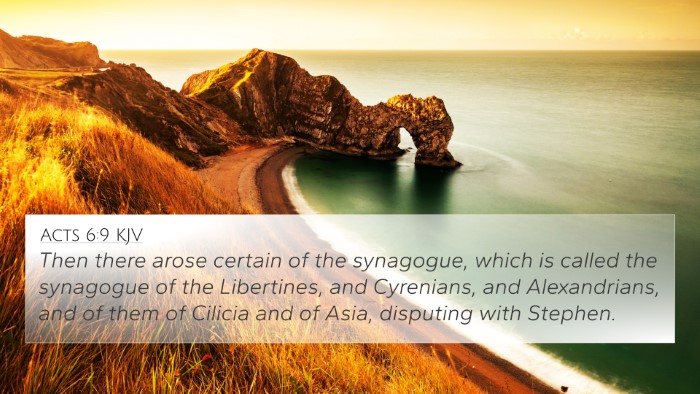 Acts 6:9 (KJV) »
Acts 6:9 (KJV) »
Then there arose certain of the synagogue, which is called the synagogue of the Libertines, and Cyrenians, and Alexandrians, and of them of Cilicia and of Asia, disputing with Stephen.




